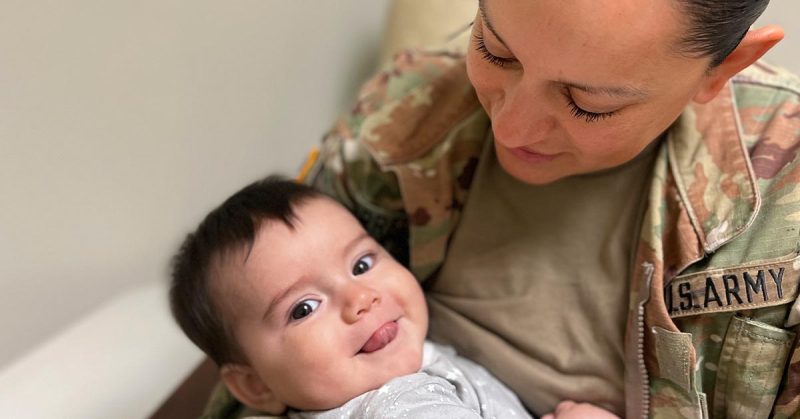Every year, we celebrate National Breastfeeding Month in the month of August, and this health observance turns the spotlight on breastfeeding as the premier source of nutrition for babies.
As a registered dietitian nutritionist and a mom who nursed my baby girl for 11 months, I am a huge proponent of breastfeeding. Breast milk, or “liquid gold,” as some call it, is a wonder food, custom-made for infants with the exact nutrients they need to grow and thrive. It protects babies against asthma, certain infections and obesity, and it promotes brain development.
Breastfeeding is great for moms, too. The comfort and closeness of breastfeeding reinforce the parent-child bond, it’s incredibly convenient, and studies demonstrate it can even protect moms from Type 2 diabetes, certain types of cancers and heart disease later in life.
Oh, and did I mention that it’s free?
In short, breast milk is the whole package. And this is exactly why the 2020-2025 Dietary Guidelines for Americans recommend feeding infants breast milk exclusively for about the first six months of life. The guidelines further endorse the continuation of breastfeeding through the child’s first birthday or longer if desired.
So why doesn’t every mother breastfeed? There are many reasons. Some babies have trouble latching onto the breast. Not every family is comfortable with breastfeeding. Then there’s the challenge of breastfeeding after returning to work or military service. When a mom and her baby are separated, nursing on demand is out, so most moms who want to keep feeding their baby breast milk end up pumping when they are physically separated from their babies.
For some moms, pumping can be inconvenient and a downright hardship if they cannot find a clean, private room to pump or a refrigerator to store the milk. Moms who are away from their babies for days or weeks because of travel may have to consider the cost of shipping their milk home as well.

The Defense Department recognizes how important breast milk is to babies and has established policies to support breastfeeding moms. For example, a 2016 policy memo provided guidance for lactation rooms on military installations, further specifying these rooms be clean, private non-restroom spaces for nursing mothers to pump breast milk. And just this past June, the DOD issued a policy to reimburse service members up to $1,000 for expenses incurred when shipping breast milk during a PCS. This reimbursement covers costs such as dry ice, commercial shipping and excess baggage fees.
The ability to pump, store and safely ship breast milk is crucial to keeping infants well-fed, but another foundation for successful breastfeeding is the mom’s own nutritional health. Lactating women need a nutritious, balanced diet to optimize their own health while nourishing their babies.
We know that getting the right nutrients can be a challenge for some members of the military community, particularly when money is tight or work schedules make it hard to plan meals. Fortunately, the department has taken many actions to increase the affordability and accessibility of healthy foods.
Military OneSource offers a variety of resources to ensure families can access healthy, affordable food. For example, the Food Security Resources and Support Programs MilLife Guide, which is available on Military OneSource, lists a variety of programs where families can find support. Among the listings is the Special Supplemental Nutrition Program for Women, Infants and Children, which provides pregnant, postpartum and breastfeeding moms with foods that meet their unique nutritional needs. WIC even has designated experts to help with any breastfeeding issues a mom may be experiencing, such as a low milk supply or a newborn who has difficulty latching. If you’re OCONUS, the WIC Overseas Program has you covered.
Every mom wants what’s best for her baby. In fact, the vast majority nurse their newborns at the very start. In the United States, 83% of infants receive some breast milk at the beginning of their lives. But as infants get older and the obstacles to breastfeeding pile up, those numbers drop. By the time a baby is 6 months old, just 55.8% receive any breast milk, and only 24.9% receive breast milk exclusively.
It doesn’t have to be this way. We can keep those numbers up by supporting our military moms and joining the DOD in ensuring new mothers have the practical, emotional and nutritional support to give their babies the best possible start in life.

Courtney P. Paolicelli, DrPH, RDN, is a program analyst with the Defense Department, Office of Military Community and Family Policy. In this role, she serves as a subject matter expert on food and economic security and provides input on MC&FP’s related efforts. Dr. Paolicelli has been a registered dietitian nutritionist for nearly 20 years, and she also holds specialty certifications in both health education and diabetes care and education.




